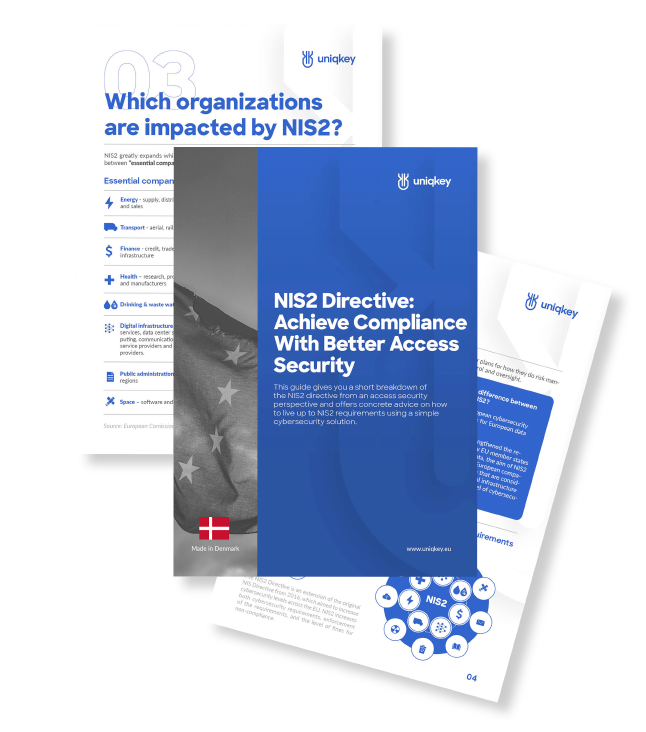ESSENTIAL ENTITIY
Transport Sector
Learn how the NIS2 directive affects operators in the transportation sector.
The Transport Sector
Employing nearly 10 million people, Europe’s transport sector is responsible for delivering the infrastructure and services that bring people and businesses together. Covering everything from urban public transportation systems to rural roads and inter-regional air travel, this sector is a cornerstone of modern society and the economy.
The transport sector is considered an essential sector under the coming NIS2 directive because any major interruption in it could cause destructive ripple effects throughout society.
What’s Included In This Sector?
This sector includes: Air, rail, water, and road transportation.
Gross Domestic Product
5%
Percentage of EU’s GDP linked to the transportation sector.
Transport Jobs In EU
10MM
Number of people employed in Europe’s transport sector.
Key Cybersecurity Challenges For The Transport Sector
Ransomware Attacks
Ransomware is a growing threat to the transportation sector, disrupting operations and demanding payment to restore access to critical systems.
Supply Chain Vulnerability
Third-party suppliers and contractors can introduce vulnerabilities into transportation systems through weak security practices.
Threats To Safety Systems
The sector is home to safety-critical systems (train control systems, aviation and maritime navigation systems) that can cause harm if compromised.
Connected Devices
The use of connected devices such as GPS trackers, smart sensors, and in-vehicle systems increases the risk of cyberattacks and data breaches.
Limited Security Investment
As transportation companies often focus on optimizing efficiency. Cybersecurity is not a top priority, leading to limited security budget and skills gaps.
Employee Training
A lack of employee training and awareness in cybersecurity increases the risk of human error, such as falling for phishing scams or not following best practices.
The Implications of NIS2 For The Transport Sector
Like other critical infracture sectors, the transportation sector will likely be severely affected by the NIS2 Directive. Below are some of the most significant implications of the NIS2 Directive for the transport sector.

Operational technology Security
The NIS2 directive mandates transportation companies to evaluate and control the potential cybersecurity threats from external suppliers and vendors like makers of critical safety components and IT service providers. This entails verifying that their systems and products meet security standards and determining their ability to withstand and recover from a cyberattack.
protecting real-time data exchange
Operators in the transport sector rely heavily on real-time data exchange between various systems, such as air traffic control systems. The NIS2 Directive will require companies to secure these data exchange channels to prevent unauthorized access or manipulation. This could include implementing encryption, access controls, and monitoring systems to ensure the confidentiality, integrity, and availability of real-time data.
safeguarding supply chains
The transportation sector uses a large amount of operational technology, such as control systems for trains, ships, and planes, and the NIS2 directive will require companies to implement measures to secure these systems from cyber threats. This could include implementing firewalls, access controls, and intrusion detection systems to protect the control systems from unauthorized access or manipulation.
IMPACT ON THE transportation MARKET
Upon implementation of NIS2, transport operators will need to invest in more effective cybersecurity requirements, potentially increasing costs in the short term. Despite this, the increased investment in the transportation sector will result in a more secure and resilient industry in the long run, and companies that are able to invest heavily in security are going to gain a competitive advantage over those that are not able to do so.
Get NIS2 Complaint (Whitepaper):
Time is running out to comply with NIS2 regulations. Starting your compliance journey sooner rather than later is crucial.
A typical NIS2 compliance process, including security assessments, auditing, consulting, and tool implementation, takes approximately 12 months.
For practical advice on how to comply with the requirements, check out our NIS2 white paper.

